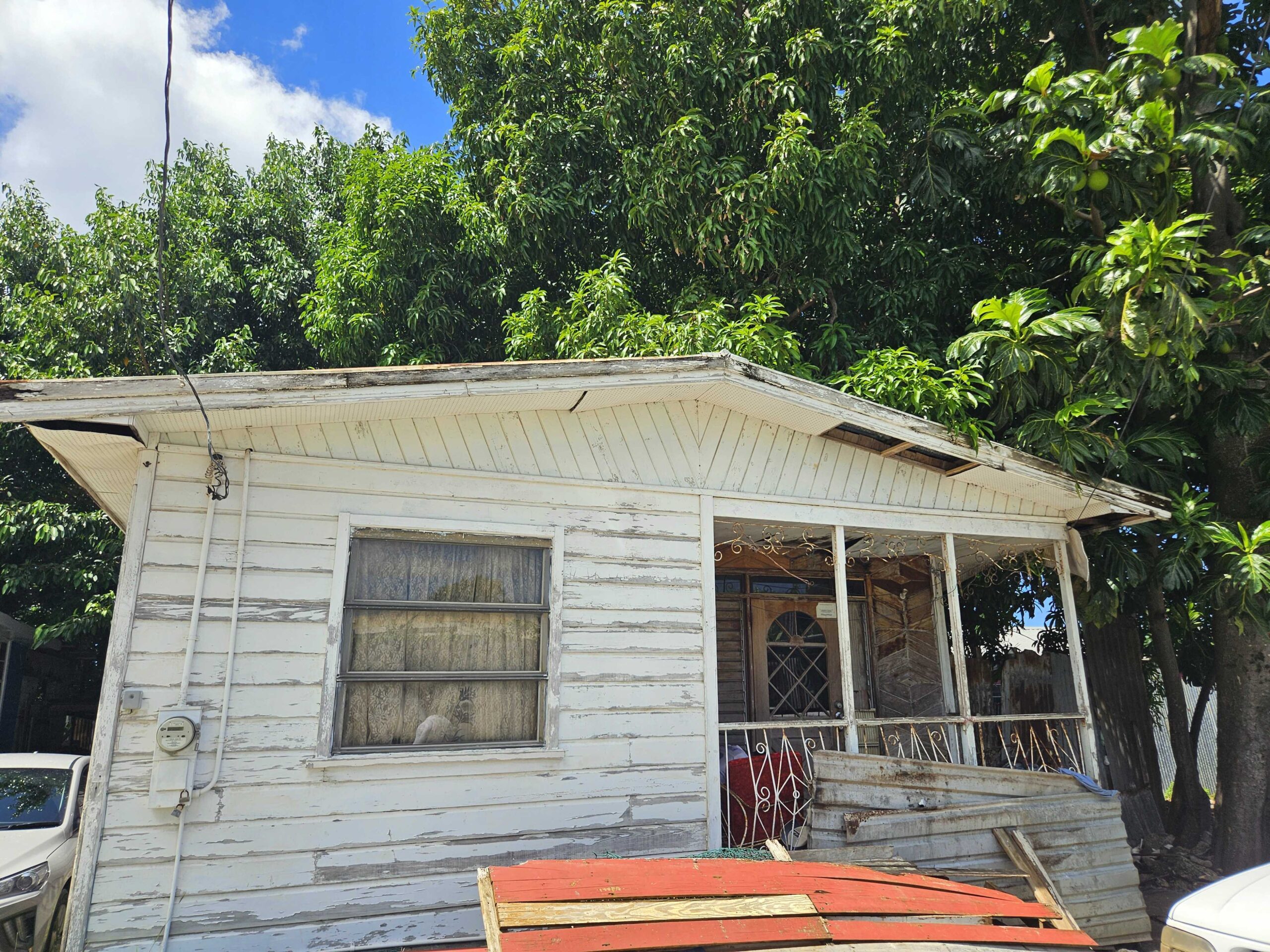Elder Poverty Is Hiding In Plain Sight

This investigation by Barbados TODAY into the living conditions of 90-year-old Albertha Dowell and her family in Brittons Hill in this edition has revealed a harsh reality that many of us prefer to ignore: deep poverty among our elderly population. This situation is not merely an isolated case; it is a glaring reflection of systemic failures in our social safety nets. We simply cannot fathom how many seniors endure such penury while the temporal engage in political rhetoric and the pastoral in religious fervour that rings hollow amid immense suffering.
Albertha Dowell’s home is a haunting testament to neglect, a grim visage we have seen repeated time and again in the best nation in which to live in the Eastern Caribbean – so says the United Nations indices. With a roof that leaks, rotting floors, and walls covered in mould, her living conditions are not just unacceptable; they are potentially lethal. The fact that her daughter, a pensioner herself, is unable to provide a better environment for her mother due to her own dire circumstances, highlights a tragic cycle of poverty that ensnares families across our nation. This is not just a family issue; it is a societal one.
Despite government efforts to intervene and relocate Dowell to a safer environment, resistance from the family underscores a broader issue: the fear and uncertainty that come with such transitions.
Regardless of the motivations and fear, it is disheartening to witness the plight of our seniors.
Add to this, an observation from the bench that more and more elderly people are turning to shoplifting for sustenance. Something is rotten in the state of the nation.
It is one thing to speak passionately about social justice and the importance of caring for our vulnerable populations; quite another to be confronted by a reality on the ground that is utterly immune to policy speeches.
Then there is the soft bigotry of society’s neglect: to allow our neighbours to live in squalor or discard them at the hospital emergency door, to be forgotten by relatives and bypassed by the very systems that are supposed to protect them. All this in a nation that is ageing by the minute. But, today for them; tomorrow for us. We who have long eschewed feeling it will, if we live long enough, know it.
We do not fault Minister of Elder Affairs Kirk Humphrey’s commitment to assist the Dowell family. Nonetheless, it raises the question: why are we waiting for families to make decisions about their loved ones’ welfare when the urgency of the situation is clear? There is a clear gap in our governance system, big enough for an old lady in Villa Road to fall through, house and all, for so long.
This single but hardly novel incident, coupled with the judicial observation reported elsewhere in this edition, suggests there is a need for an overhaul of our elder poverty strategies. As a country we must create a comprehensive framework that addresses the multifaceted challenges our seniors face daily. What works needs to be boosted; what has failed must be discarded, despite the lament: “We have always done it like that before.”
The next budget must allocate significantly more resources to elder care programs that ensure safe housing, health care, and social support. We urge the state to foster more community programmes that connect families with resources and support networks, alleviating the burden on those who care for elderly relatives.
There also needs to be an appeal to reason, and to the heart, with public education and awareness initiatives to encourage a culture of respect and care and increase awareness of the rights and needs of the elderly – and the inevitability of our own ageing.
This latest incident also reveals the need to simplify the process for families seeking help, thus ensuring that assistance is not just available but accessible. This must be backed by regular assessments of living conditions for seniors, ensuring that those in need receive timely interventions. Again, we suggest that there is a role for the much-maligned constituency council. We already have in our district emergency system the kernel of a local government. We are not advocating a return to the days of Poor Relief in the mayoralty of Bridgetown but for clearer eyes fixed on the granular details of life in the community.
Yet all of our recommendations are moot if the wider society passes over the Albertha Dowells of this nation, assuming always that the relatives are in a position to help. There is rampant neglect of our elderly that reflects poorly on us all. We ought to transform our compassion into action and ensure that our elders are treated with the dignity and respect they deserve.
For Albertha Dowell and her family, there are not enough days to make all things right for those who gave the best years of their lives for the better nation we enjoy. The current state of affairs is, not to put too fine a point on it, horribly, wastefully wrong.
The post Elder poverty is hiding in plain sight appeared first on Barbados Today.


